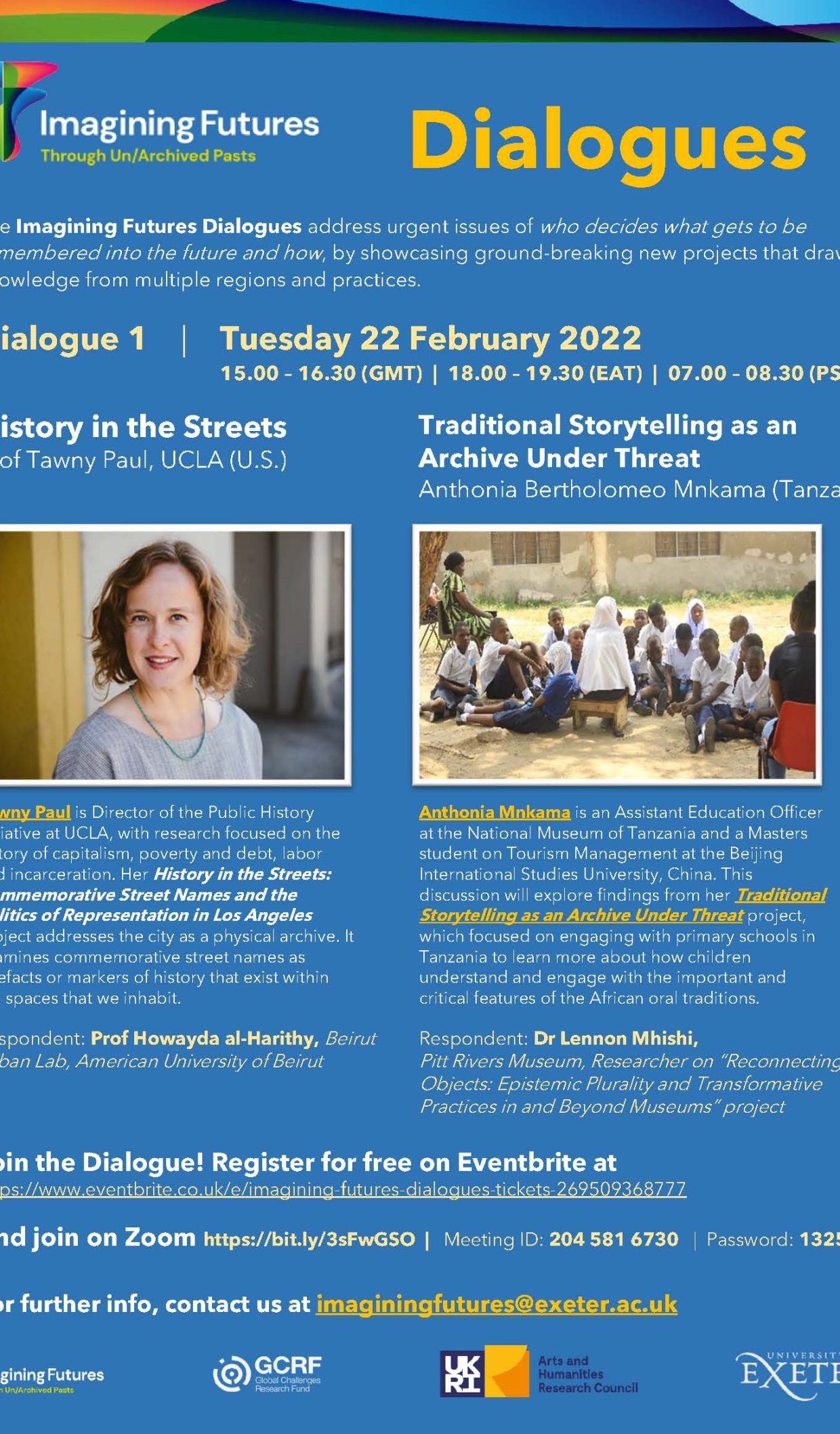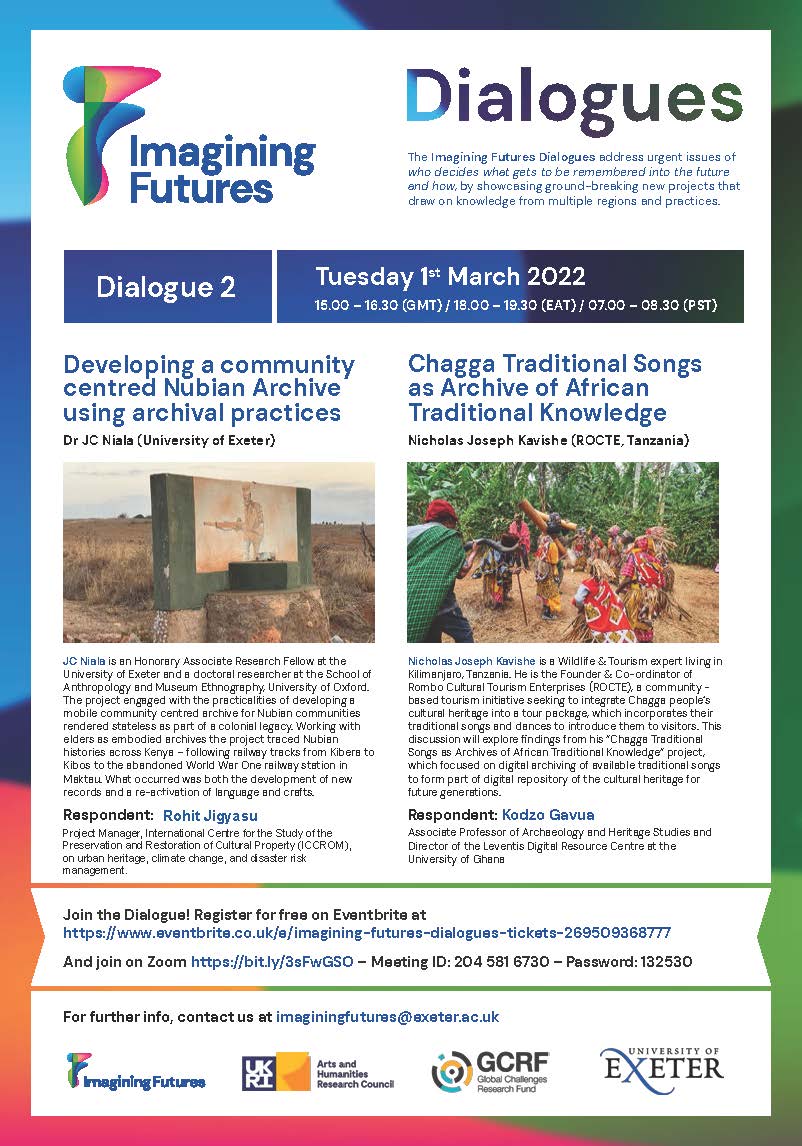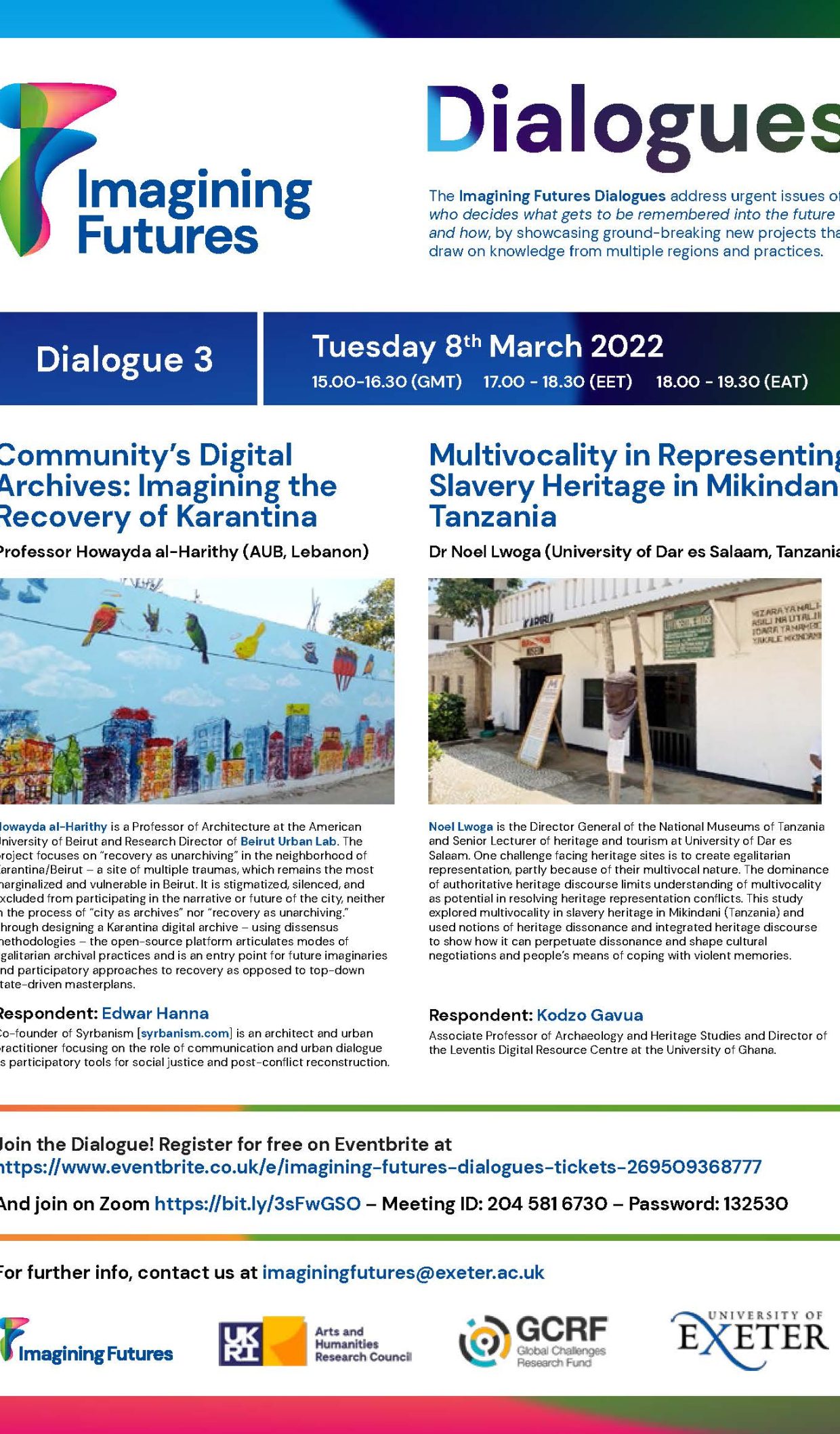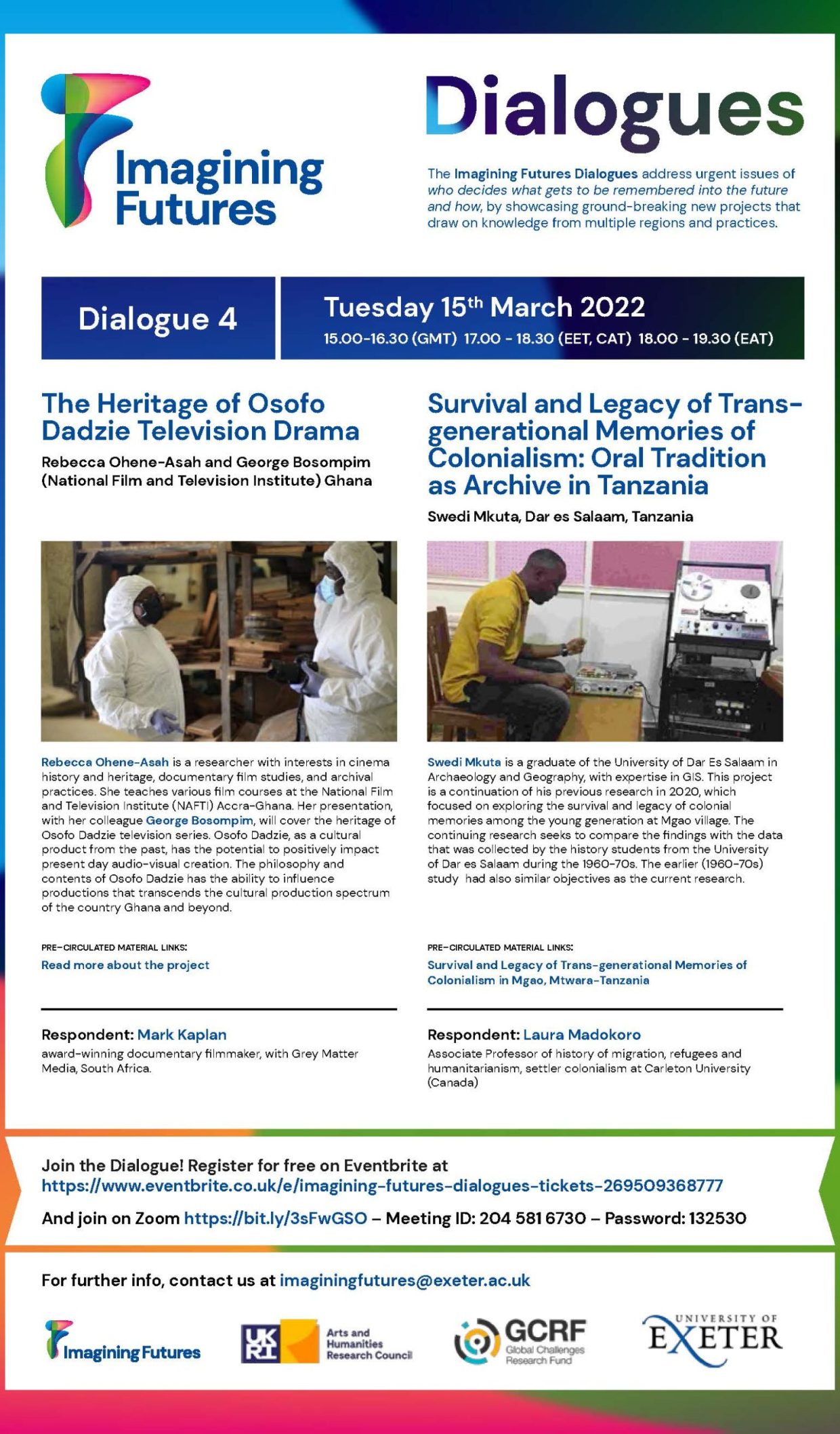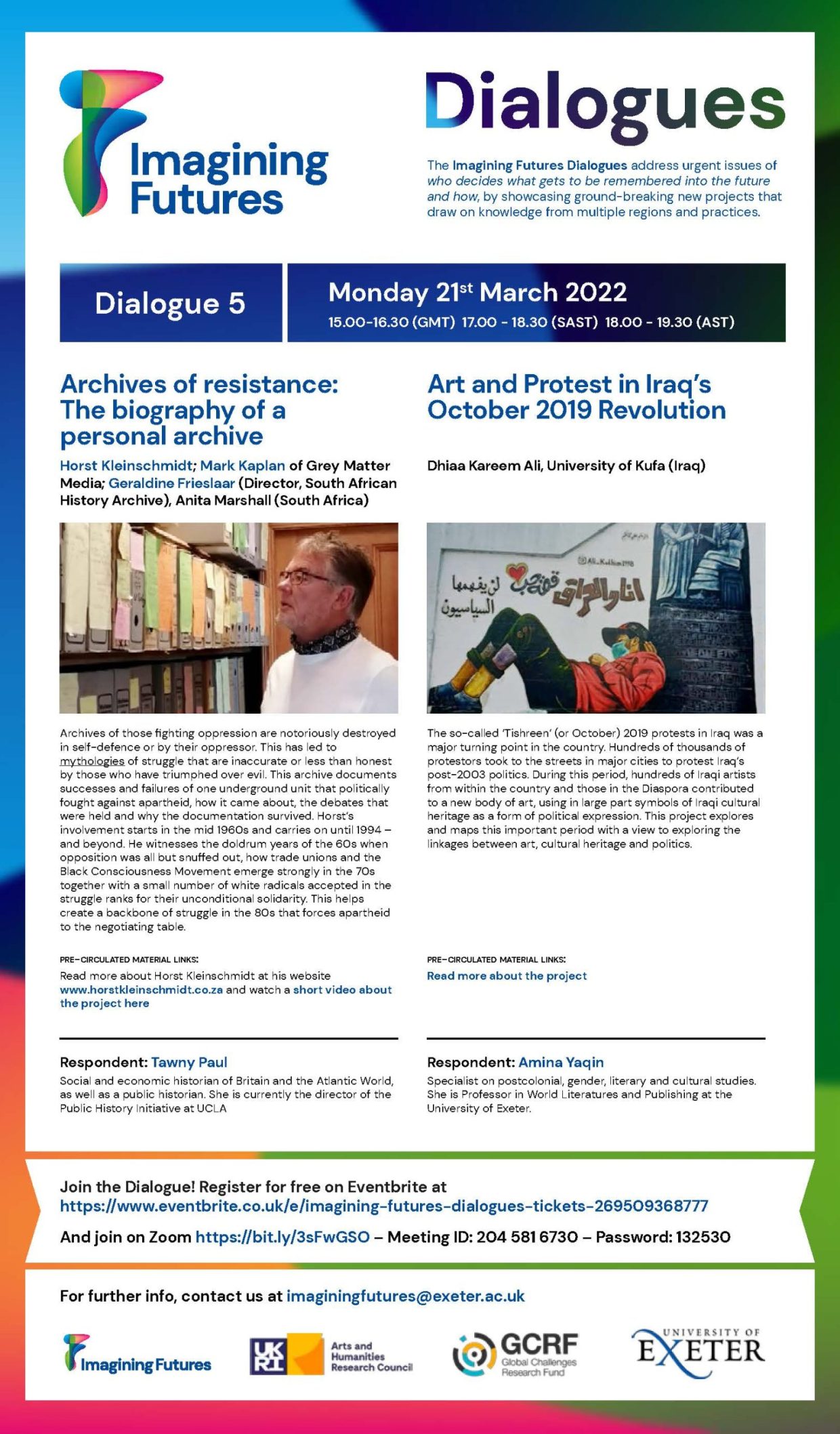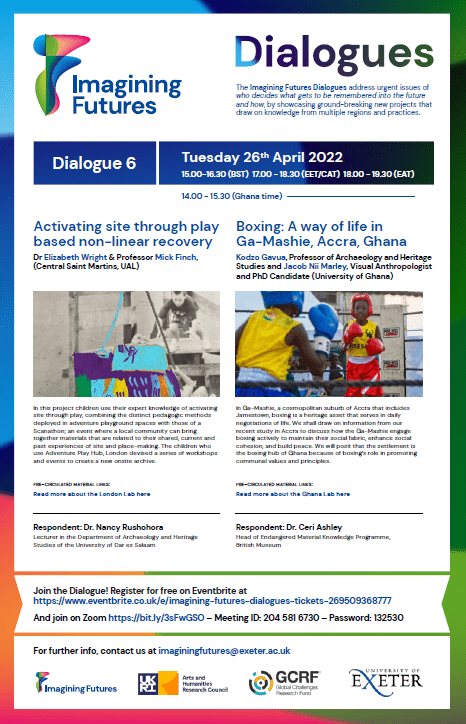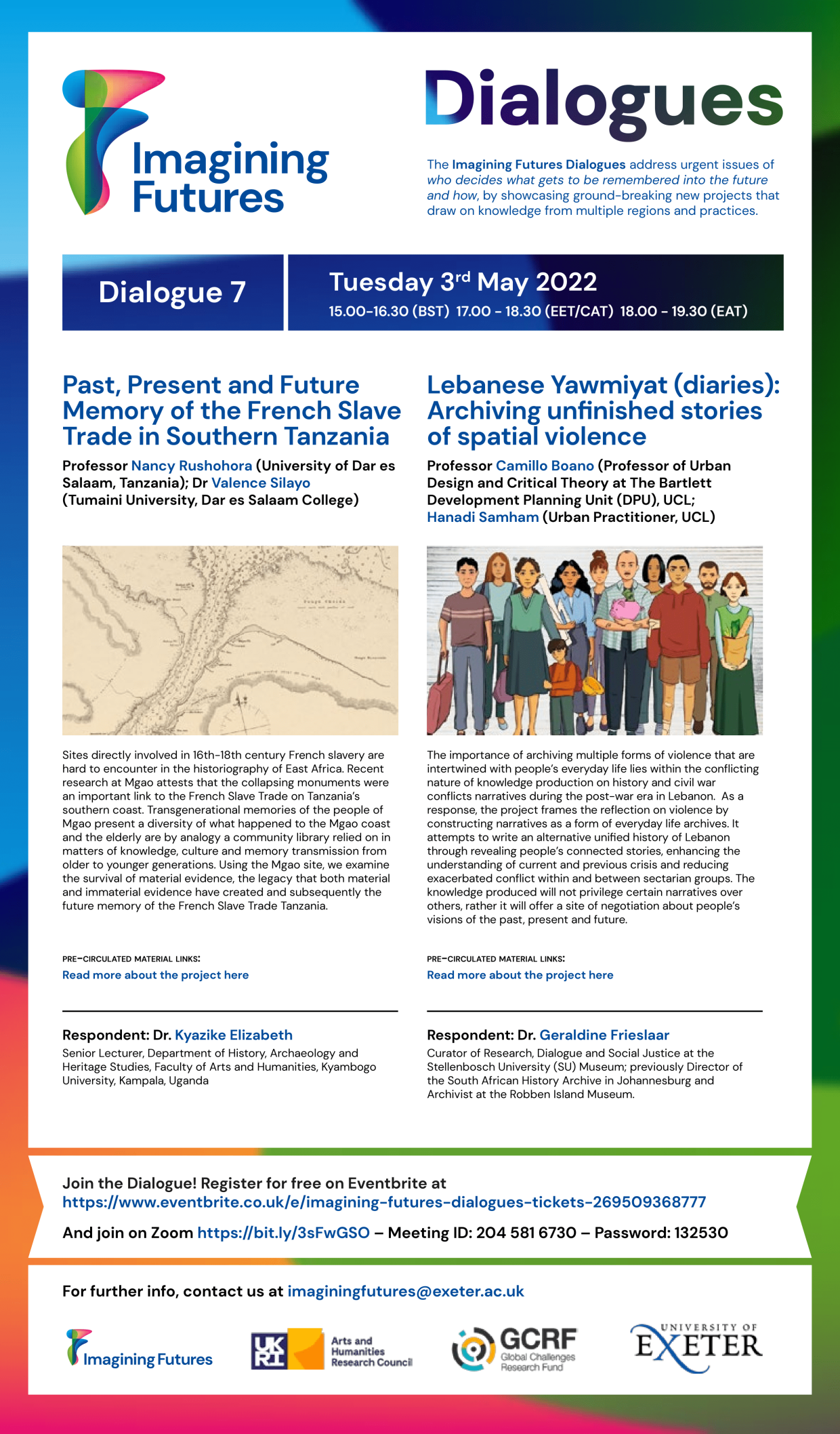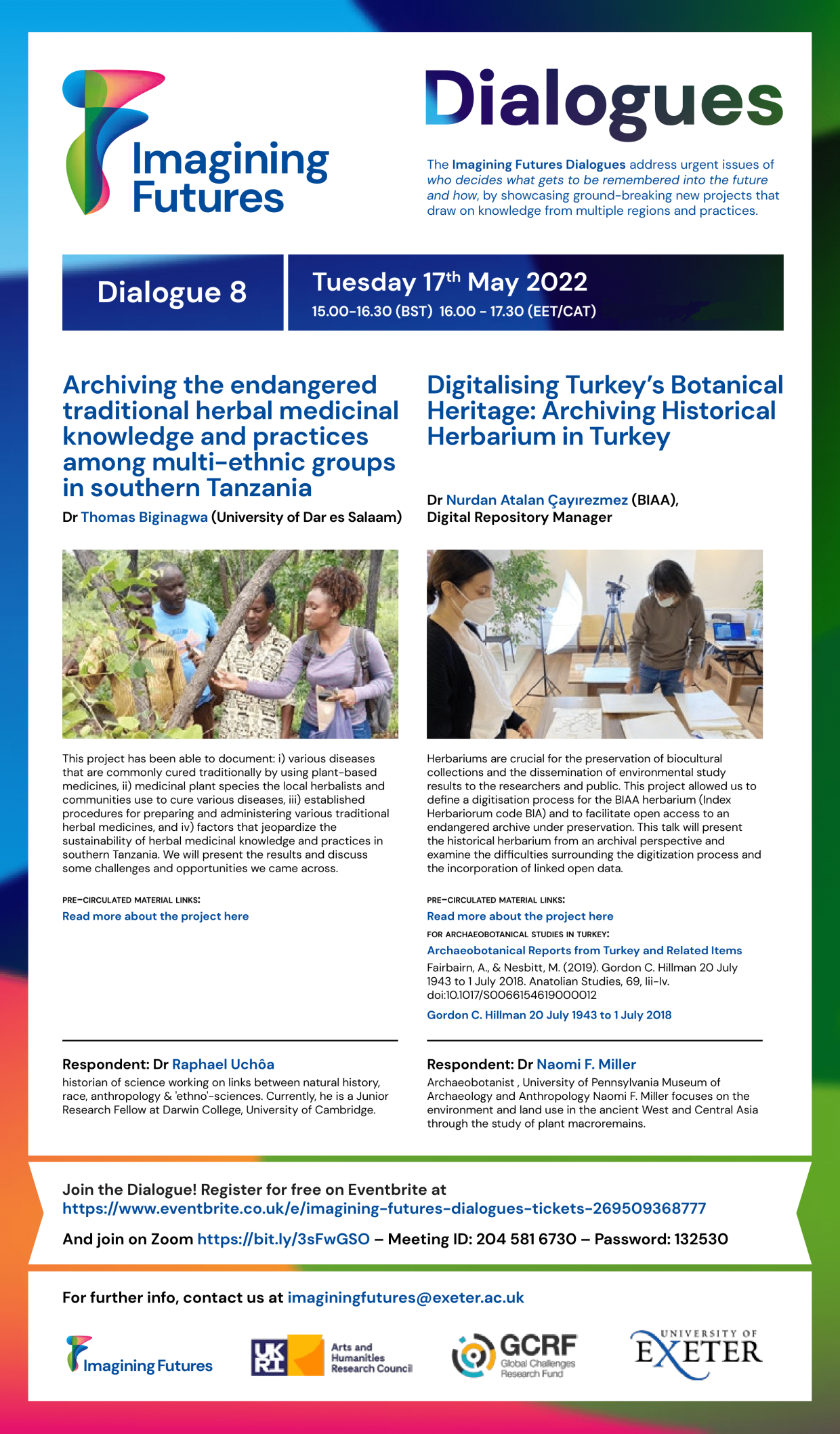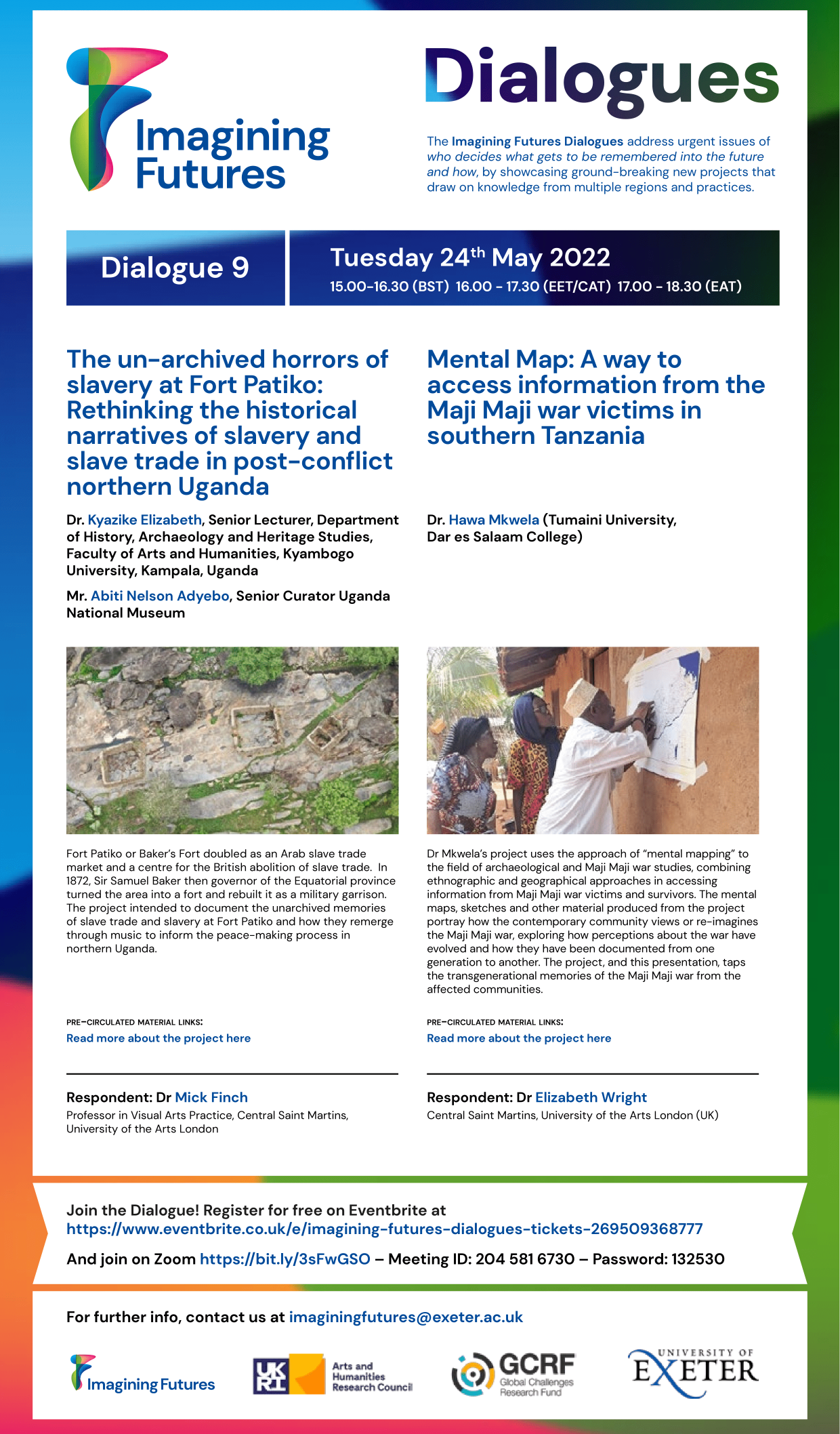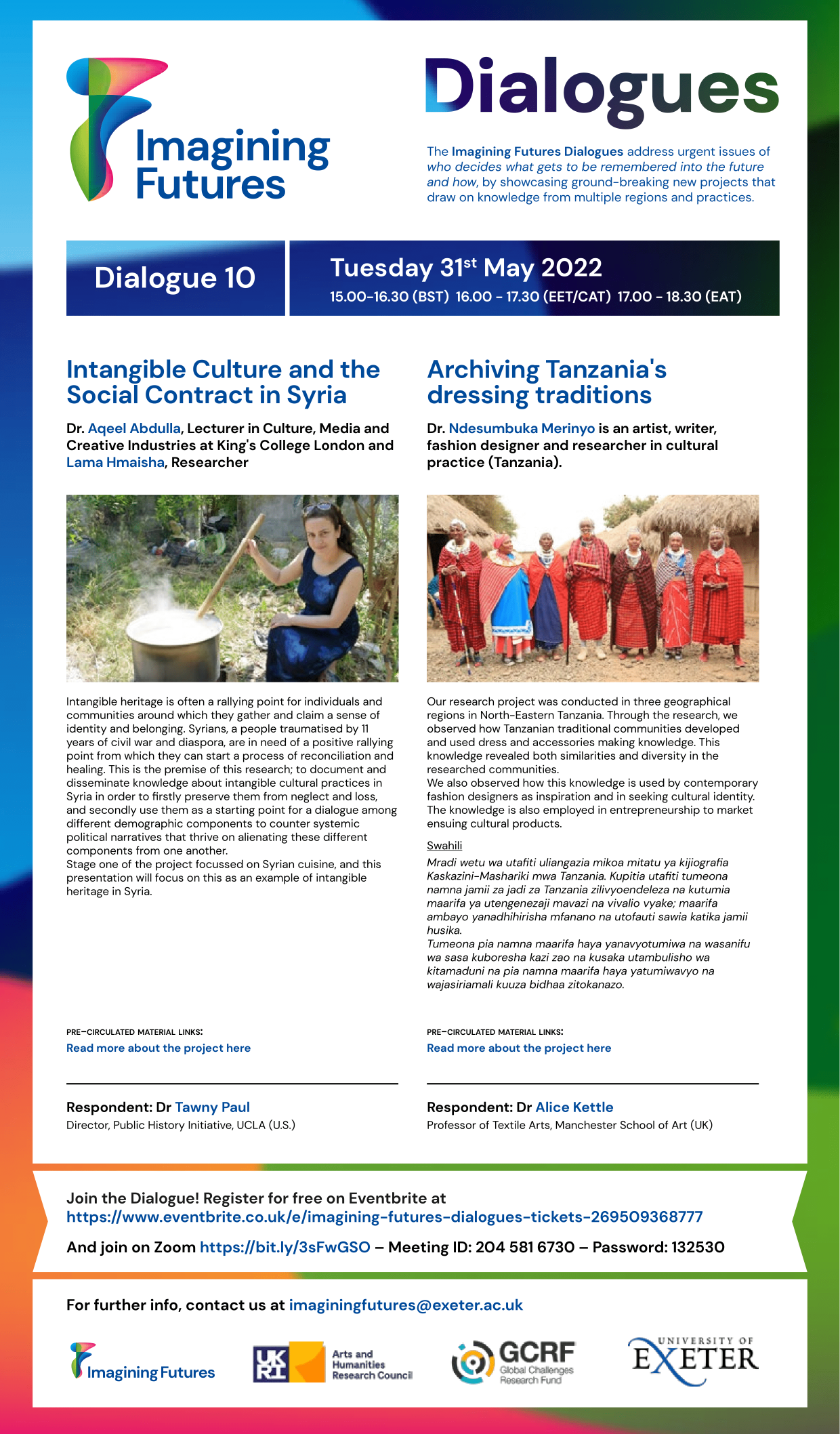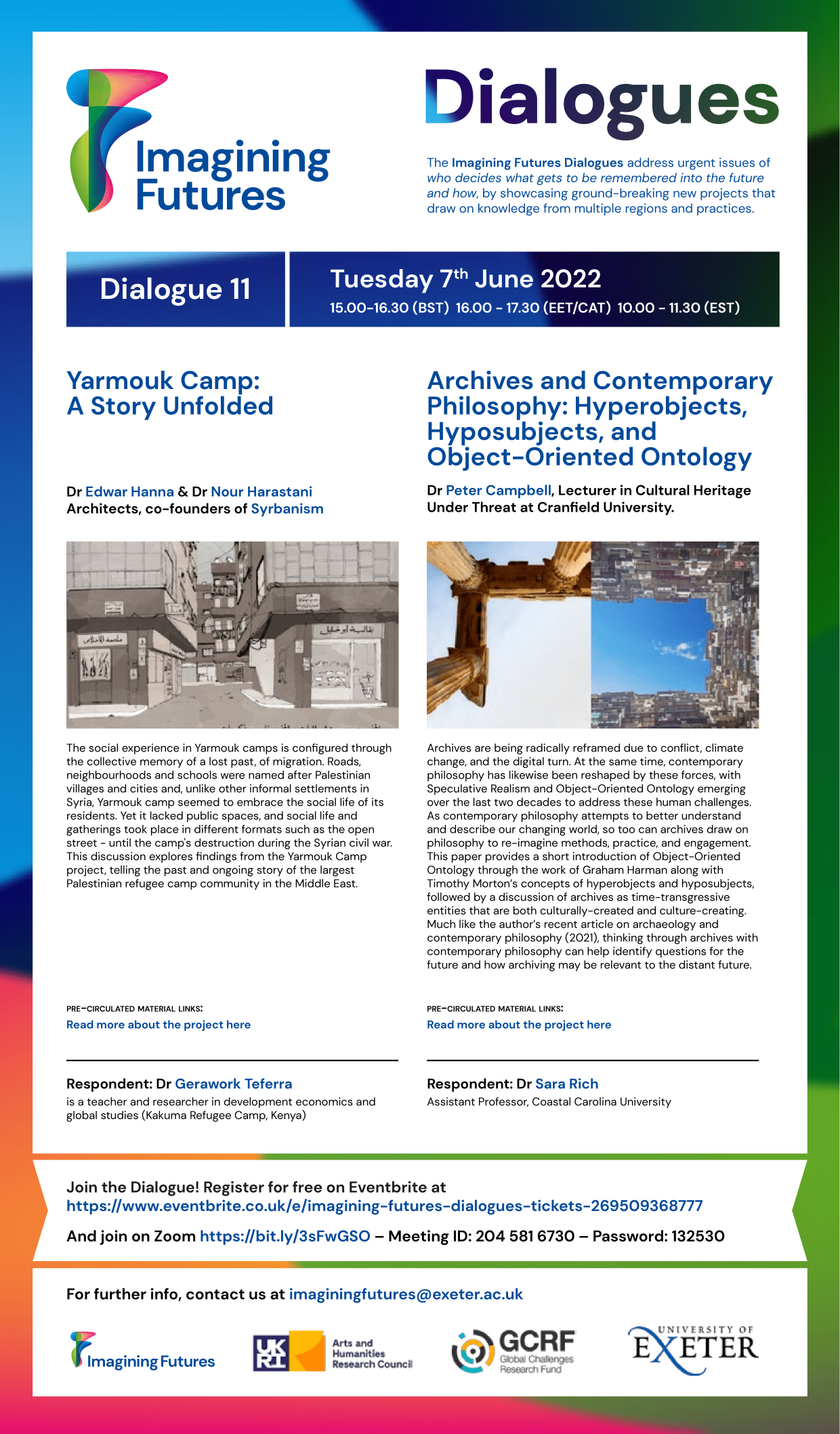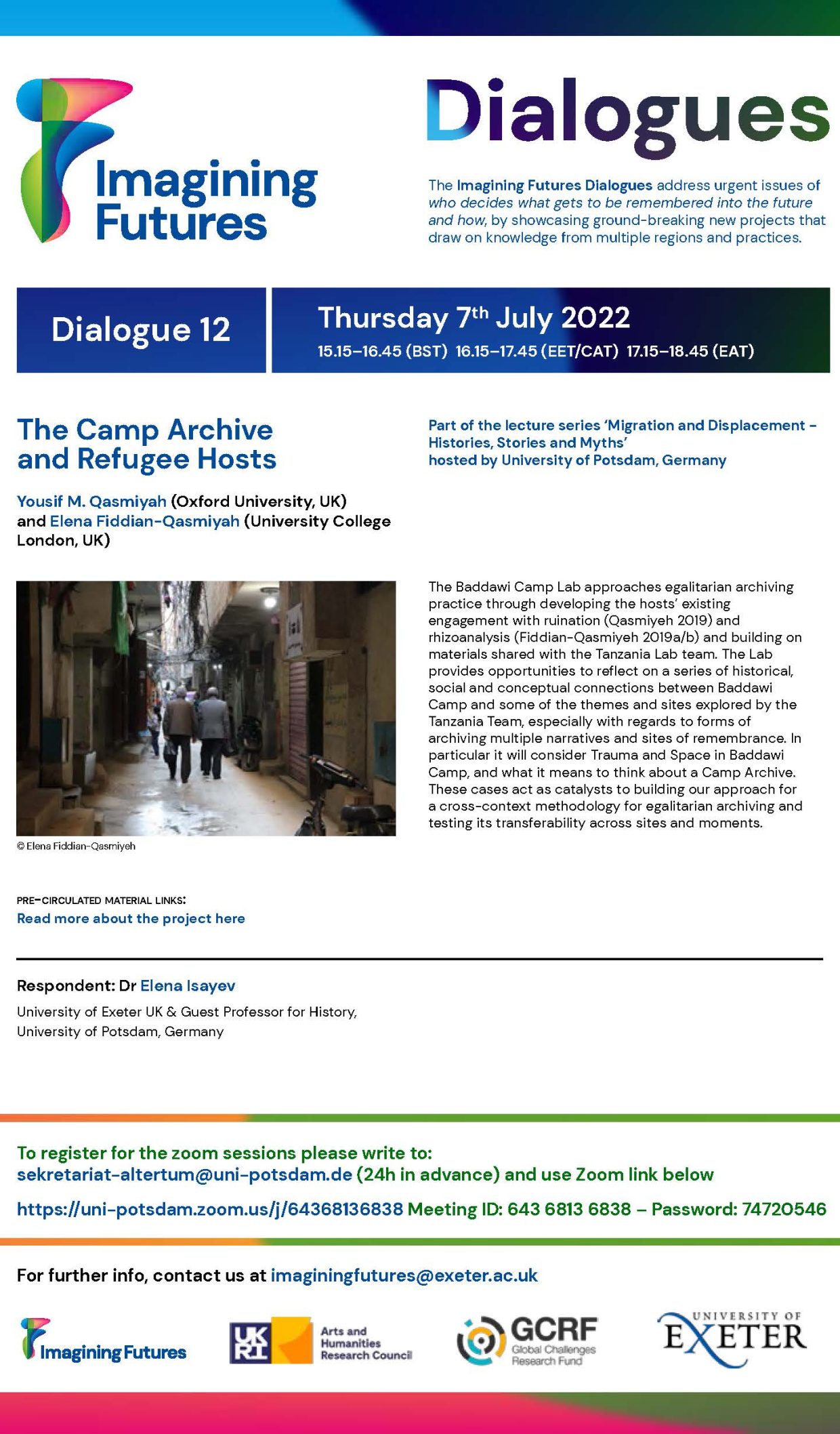About These Events
The weekly Imagining Futures Dialogues addressed urgent issues of who decides what gets to be remembered into the future and how, by presenting projects that drew on knowledge from multiple regions and practices.
They brought together the work of partners, practitioners and project leaders from across the Imagining Futures (Through Un/Archived Pasts) network, a Global Challenges Research Fund (GCRF) project supported by the Arts and Humanities Research Council (UKRI).
The Imagining Futures initiative is founded on the idea that archives are negotiations about visions of the future – whose story will continue to be told and how, and whose silenced – these become acute in moments of threat, post-conflict, displacement and reconstruction. We draw on the widest meaning of archive by including documents, material remains and creations, landscapes, oral transmissions, song, bodily movements, daily customs and ancestral laws.
Most Tuesdays between February and July 2022, the Imagining Futures Dialogues featured two projects with expert teams, respondents and audience discussing insights gained from current current work in the field.
The 2022 Dialogues Programme
Dialogue 1 – 22 February: Tawny Paul – History in the Streets; Anthonia Bertholomeo Mnkama – Traditional Storytelling as an Archive Under Threat [Watch here]
Dialogue 2 – 1 March: JC Niala – Developing a community centred Nubian Archive using archival practices; Nicholas Kavishe – Chagga Traditional Songs as Archive of African Traditional Knowledge
Dialogue 3: Howayda al-Harithy -Community’t Digital Archives: Imagining the Recovery of Karantina; Noel Lwogo – Multivocality in Representing Slavery Heritage in Mikindani, Tanzania [Watch here]
Dialogue 4: Rebecca Ohene-Asah & George Bosompim – The Heritage of Osofo Dadzie Television Drama; Swedi Mkuta – Survival and Legacy of Trans-generational Memories of Colonialism: Oral Tradition as Archive in Tanzania [Watch here]
Dialogue 5 – 21st March: Horst Kleinschmidt, Mark Kaplan, Geraldine Frieslaar & Anita Marshall – Archives of resistance: The biography of a personal archive [Watch here]; Dhiaa Kareem Ali – Art and Protest in Iraq’s October 2019 Revolution.
Dialogue 6 – 26 April: Elizabeth Wright & Mick Finch – Activating site through play based non-linear recovery; Kodzo Gavua & Jacob Nii Marley – Boxing: A way of life in Ga-Mashie, Accra, Ghana [Watch here]
Dialogue 7 – 3 May: Hanadi Samhan & Camillo Boano – Lebanese Yawmiyat (Diaries): Archiving unfinished stories of spatial violence; Nancy Rushohora & Valence Silayo – Past, Present and Future Memory of the French Slave Trade in Southern Tanzania [Watch here]
Dialogue 8 – 17 May: Nurdan Çayırezmez – Digitalising Turkey’s Botanical Heritage: Archiving Historical Herbarium in Turkey; Thomas Biginagwa – Archiving the endangered traditional herbal medicinal knowledge and practices among multi-ethnic groups in southern Tanzania [Watch here]
Dialogue 9 – 24 May: Elizabeth Kyazike – The un-archived horrors of slavery at Fort Patiko: Rethinking the historical narratives of slavery and slave trade in post-conflict northern Uganda; Hawa Mkwela – Mental Map: A way to access information from the Maji Maji war victims in Southern Tanzania [Watch here]
Dialogue 10 – 31 May: Aqeel Abdulla & Lama Hmaisha – Intangible Culture and the Social Contract in Syria; Ndesumbuka Merinyo – Tanzanian Dressing Traditions: Documentation and Digitization of disappearing legacies and emerging patterns
Dialogue 11 – 7 June: Edwar Hanna & Nour Harastani –Yarmouk Camp, A Story unfolded; Peter Campbell – Archives and Contemporary Philosophy: Hyperobjects, Hyposubjects, and Object-Oriented Ontology
Dialogues 12 – 7 July: Elean Fiddian-Qasmiyeh & Yousif Qasmiyeh – The Baddawi Camp Archive and Refugee Hosts [POSTPONED]

